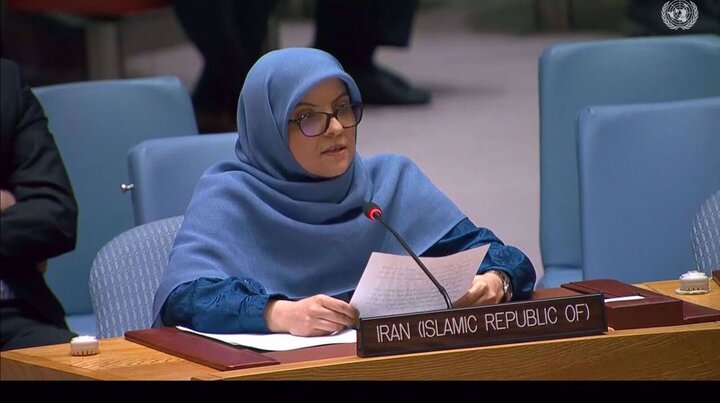Iran (IMNA) - Speaking ahead of a UN Security Council meeting on Tuesday on the protection of civilians and ensuring their security and dignity in conflict, Iran's Ambassador and Deputy Permanent Representative to the UN, Zahra Ershadi, argued that lifting unilateral sanctions would allow the international community to provide swift, timely, and effective humanitarian assistance.
She warned that unlawful restrictions also hampered healthcare systems and humanitarian groups, preventing access to medical supplies and hindering relief distribution, and that lifting the sanctions would guarantee that crucial help reaches people in need without undue delays or constraints.
She stated, "Under international humanitarian law, all parties to a conflict are required to ensure that civilians have access to essential goods and services, including food and medical care." She emphasized that combatants should avoid attacking civilian targets like food supplies, water sources, and hospitals.
The "critical" situation in the Middle East, she said, is being exacerbated by terrorism, occupation, unlawful unilateral actions, and the presence of illegal foreign forces. These factors continue to have a devastating impact on local population and infrastructure.
The Iranian representative pointed out that a UN report revealed a worrying spike in civilian fatalities, with at least 16,988 deaths registered across 12 conflicts, a 53 percent increase from the year before.
She said that the research also emphasizes the damaging and long-lasting impacts of armed conflicts on food security, which have led to ongoing famine in many areas.
Ershadi continued, "These disturbing data highlight the urgent need for coordinated measures to address the impact of armed conflicts on food security and safeguard civilian populations.


Your Comment